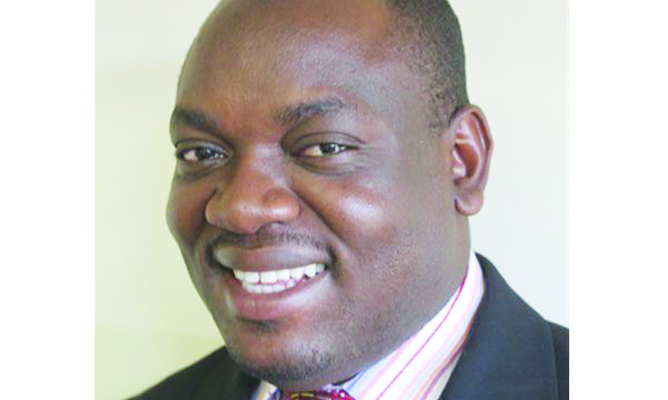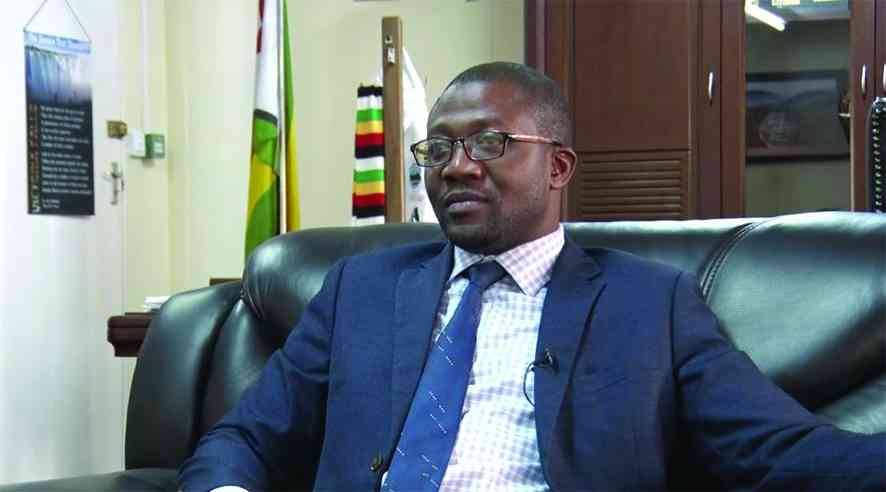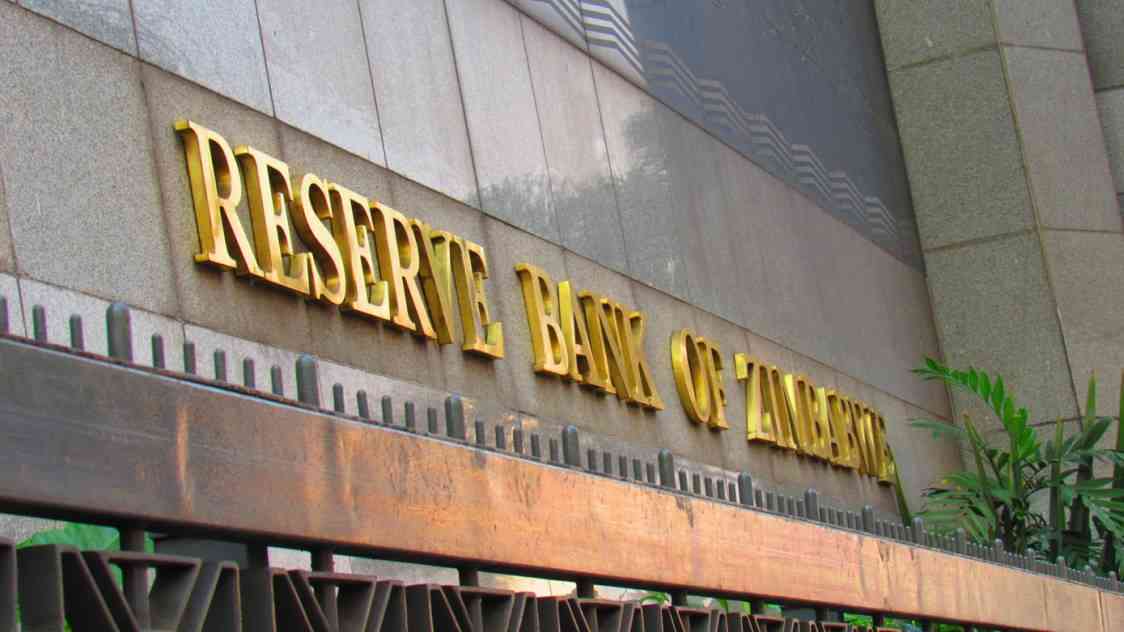
Below is a conversation between the Procurement Regulatory Authority of Zimbabwe (PRAZ) chief executive Nyasha Chizu (NC) and NewsDay (ND) in which he outlines how he is enforcing a new way of public procurement in ministries, parastatals, local authorities, commissions and other government agencies.
THE INTERVIEW: NewsDay
ND: A lot is expected from the Procurement Regulatory Authority of Zimbabwe in terms of inculcating and sustaining efficiency within the public sector procurement process. May you briefly explain where you are in terms of bringing in a new culture of procurement efficiency and effectiveness in the public sector?
NC: Indeed, significant strides have been made in terms of reforming the procurement process in the public sector. So far all ministries, State-owned enterprises and local authorities have either established or are in the process of finalizing the establishment of procurement management units (PMUs). These units are expected to be manned by professional procurement officers who will be licenced in terms of the Public Procurement and Disposal of Public Assets Act [Chapter 22:23].
As part of enhancing and sustaining a culture of procurement efficiency and effectiveness, the PMUs are now responsible for the whole procurement cycle in the public sector from the planning, adoption of the appropriate method of procurement, preparing bid notices and shortlisting, managing the bids and evaluation processes, preparing evaluation reports to awarding of contracts and overseeing their management and preparing procurement reports. Our role as PRAZ is to ensure these requirements and processes are adhered to.
Since this is a new trajectory of procurement, a lot of activities around capacity building are already being rolled out. To date accounting officers of procuring entities, procurement management units, trainers and the Procurement Regulatory Authority of Zimbabwe management and staff have undergone training. Authorisation of procurement management units is on-going and evidence of a new culture of public procurement is emerging through efficient public sector expenditure utilization, better quality and timely service delivery to citizens. The new culture of procurement is not only bringing in efficiency and effectiveness in the public sector, but it also brings in value for money.
ND: What measures are in place to ensure transparency, fair, honest, cost-effective and competitive procurement as stated in the Public Procurement and Disposal of Public Assets Act [Chapter 22:23]?
NC: There are clear procedures to be followed as prescribed by the Act which states the procedures that procuring entities are supposed to follow in terms of invitation to bid. For the purpose of ensuring wide competition, a procuring entity may send its notice of invitation to bid directly to potential bidders, to chambers of commerce and to trade and professional associations after the notice has been published in the Government Gazette and the PRAZ website and at least two publications widely used for international trade or in other printed media with adequate circulation to attract foreign competitive bidders in the case of international procurement. This ensures transparency in terms of procurement.
- Chamisa under fire over US$120K donation
- Mavhunga puts DeMbare into Chibuku quarterfinals
- Pension funds bet on Cabora Bassa oilfields
- Councils defy govt fire tender directive
Keep Reading
To ensure fairness and honesty the Act oultines the code of conduct of procurement officers stipulating the qualifications and training of such officers and employees, the prevention of conflicts of interest in procurement, the prohibition of collusion with any bidder involved in the competitive bidding process and declarations of interest in particular procurements. This entails professionalisation of the procurement officers in which the Act now compels professionalisation of procurement just like other professions as accountants, lawyers and engineers among others.
The authority is moving towards licensing of procurement officers. Accounting officers are also now responsible for their procurement, which is a move towards assignment of responsibility and accountability of the procuring entities unlike in the past where the State Procurement Board would undertake procurement on behalf of the public entities.
For each procurement above the prescribed threshold the accounting officer of a procuring entity shall appoint an evaluation committee with one member of the procurement management unit who shall attend the meetings of the evaluation committee as an adviser and shall not have a vote on any issue related to be decided by the committee.
Procuring entities are now compelled to establish a procurement management unit headed by the accounting officer, which shall be responsible for managing all the entity’s procurement activity. The formation of a Special Procurement Oversight Committee for certain, especially sensitive or especially valuable contracts also separates duties, thereby, ensuring transparency in the procurement process.
The formation of PMUs, Evaluation Committees and Special Oversight Committees allows for checks and balances to the procurement process.
The Act now allows an aggrieved bidder to challenge the procurement proceedings at any stage of procurement, unlike in the past where an aggrieved bidder would challenge at the end of the procurement cycle. Procuring entities shall upon request inform a bidder, promptly and in writing, of the reason for the rejection of the bidder’s application to pre-qualify or of the bidders bid or quotation. Within one month after an award of a contract a procuring entity is supposed to publish a notice of award in the same manner as it published a procurement notice and this promotes transparency and fairness in the procurement process.
In terms of cost-effectiveness procuring, entities may and if directed by the authority conduct procurement by way of shared procurement arrangements.
In the past there were companies that got direct purchases every time a procuring entity was undertaking procurement and now those companies have to take part in the bidding process. The new Act now states the circumstances allowed for direct procurement method in Section 33 of the Act. This allows for competition among bidders in all circumstances.
The authority is working towards an electronic Government Procurement (e-GP) where the whole procurement cycle of public entities from the procurement plan, bid notices and award of contracts is publicised on the PRAZ website. The e-GP will also allow for bidding to be done electronically therefore allowing for competition by domestic and international bidders and reduction of costs in terms of the bidding process.
The authority’s monitoring and evaluation division will ensure that all these measures are implemented by monitoring and evaluating compliance and performance of both procuring entities and procurement management units.
ND: How has the Public Procurement and Disposal of Public Assets Act managed to put in place laws and regulations that minimise leakages in public procurement?
NC: The Act has enabled various policy pronouncements that are inculcating a new and professional culture of procurement. Procuring entities are now compelled to come up with yearly procurement plans and budget on what is to be procured in a particular year. The procuring entity is supposed only to proceed to procure when the requirments are on the procurement plan and is budgeted for.
The Act also sets parameters, thresholds and standards to be followed. There has been classification of procuring entities and this classification is based on the value of procurement budgets. That classification defines the thresholds for prior review by the Special Procurement Oversight Committee and the threshold for approval of the PMU by the Authority. In addition, the procuring entities are supposed to submit periodic reports of the procuring proceedings to the authority.
The operations division is providing technical guidance to ensure that statutory requirements are being complied with in terms of all procurements. To ensure compliance with the Act and regulations, the authority has a fully-fledged monitoring and evaluation division that ensures adherence to the set law and standards. The division monitors performance of the public sector in terms of compliance and performance of both the procuring entities, the procurement management units, suppliers and contractors.
ND: Has the new Public Procurement and Disposal of Public Assets Act and regulations been sensitised to all public entities and how?
NC: Yes, the Procurement Regulatory Authority of Zimbabwe has sensitised all public entities about the Act and the regulations contained in Statutory Instrument 5 of 2018. The authority has conducted sensitisation training programs for all accounting officers in the public sector as well as mayors and chairpersons of local authorities and board chairpersons and the deputies for other State enterprises.
Let me hasten to say sensitisation is an ongoing process. Our capacity building division is out in full force conducting sensitisation workshops for various entities.
The authority also calls upon those accounting officers who feel their procurement management units falls short in terms of appreciating authority for training. The PRAZ website also provides invaluable information for further information.
ND: Are there any challenges that you have faced so far in implementing the new Act to the Public Entities?
NC: This is change of law through the repealing of the Procurement Act [Chapter 22:14] and any new law and regulations faces one or two challenges. The main challenge that we are facing is for procurement management units whose procurements are above their procurement thresholds to register with the Authority and sensitisation is in progress for them to register and the response is favourable.
In addition, the procurement management units at times are failing to comply with all statutory requirements in terms of their procurement. There is a transitional period for two years therefore the Authority consistently highlights areas that need improvement for procurement management units to follow.
Where there is complete lack of procurement capacity in the units, the Authority as guided by the Act is calling upon procurement management units to professionalise by having staff with procurement qualifications in their units. The authority is available in addition to train all those who need to be trained during this transactional period and beyond.
ND: In terms of ministers, board members or accounting officers who influence the procurement of their ministries or entities, what measures have been put in place to inhibit this behaviour?
NC: The Act is categorically clear on senior persons who exert undue influence on the procurement processes of their ministries or entities. In the new Act, accounting officers in government departments now face jail if they flout laid down procedures while ministers, permanent secretaries and board members who interfere with tender procedures will also be prosecuted. Where there is interference from a higher office principally Cabinet minister, accounting officers are now required to seek that authority to commit in writing whatever action is in violation of the Act before implementing any directive.
If the minister insist through written communication, he or she may freely implement the directive and communicate to the line minister in the case of directives from the board members, auditor-general and accountant-general in the case of ministries. Where the instructions are given by the minister, the accounting officers should report to the chief secretary to the President and Cabinet.
ND: Oversight and control of the procurement cycle are essential in supporting accountability and promoting integrity in the public procurement process. How far have you gone in implementing this?
NC: The authority has the powers to issue directives to procurement entities and order them to provide information about their procurement proceedings among other issues, to ensure compliance with the law.
The authority has set up a monitoring and evaluation division that is responsible for monitoring compliance and performance by procuring entities and procurement management units. The monitoring and evaluation division is working hand in hand with our operations and capacity building division to identify gaps in terms of accountability and integrity of the public procurement proceedings. Where there are gaps the capacity building division is therefore assisting in terms of training. In terms of operationalisation of the new Act the operations division is there to assist in terms of specialised technical advice.
After the transitional period the authority will not take lightly procuring entities and procuring management units that are not abiding by the new Act and regulations and there are penalties to that effect.
ND: In brief, what does the Public Procurement and Disposal of Public Asset Act bring to the ordinary Zimbabwean?
NC: The new law brings order in the procurement process which has been previously abused. The full implementation of the public procurement reforms through implementing an electronic Government Procurement promote ease of doing business as all the bidding will be done online and those bidders both domestic and foreign who are interested in taking part in public procurement will be able to transact online therefore minimising costs which is a saving to the treasury and procuring entities. The savings realised may be used to improve other sectors of the economy which will, therefore, result in improved public sector delivery and transcends benefits to the ordinary person through improved service delivery.
These developments will enhance professionalism in the public sector thereby leading to a reformed and sustainable procurement system which will also yield to efficient government expenditure utilisations, better quality and timely service delivery to the citizens.
The reforms are premised on achieving value for money in all procurement activities in a transparent, fair and honest manner in support of the vision of President Mnangagwa of achieving an “Upper middle income economy by 2030.”











